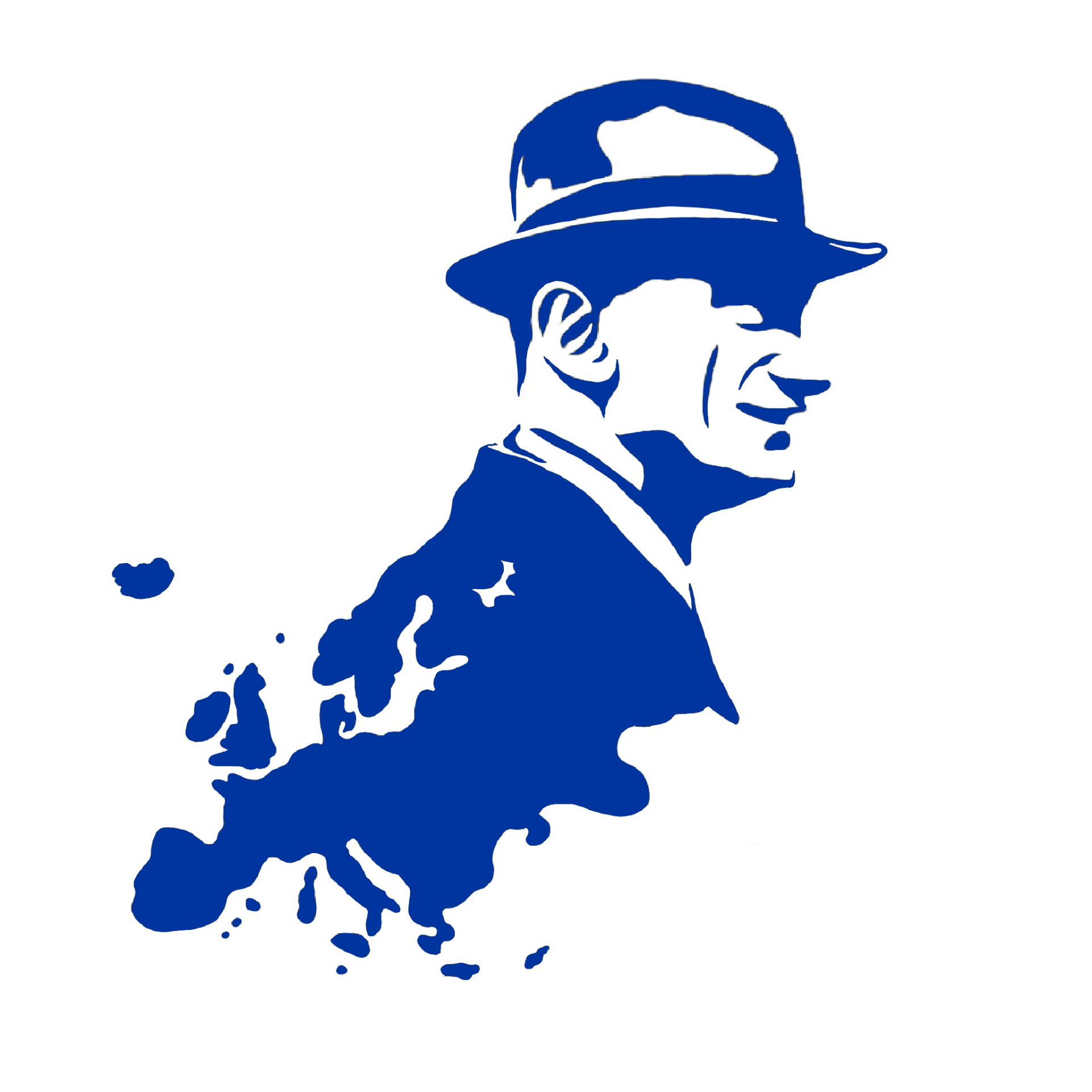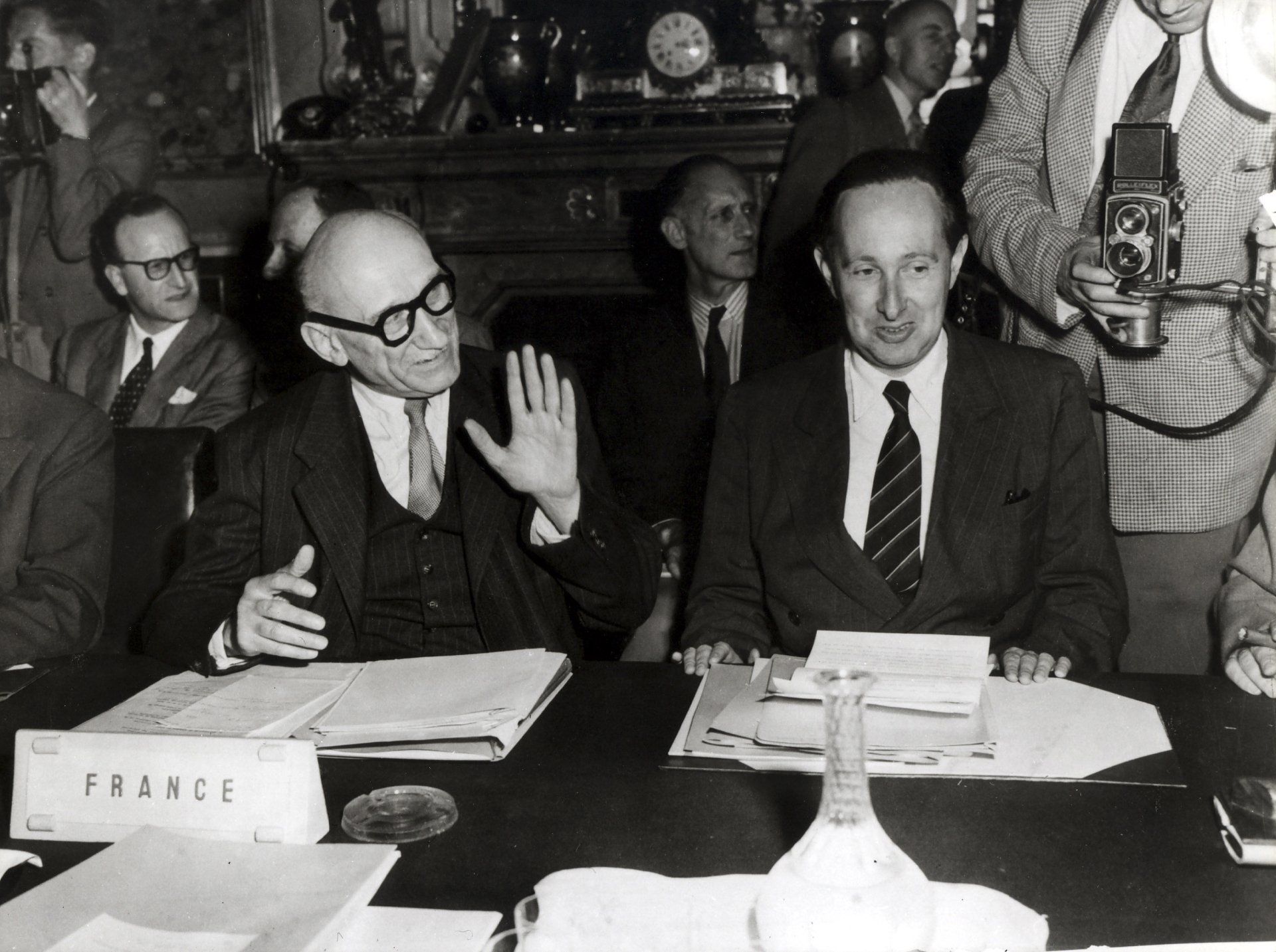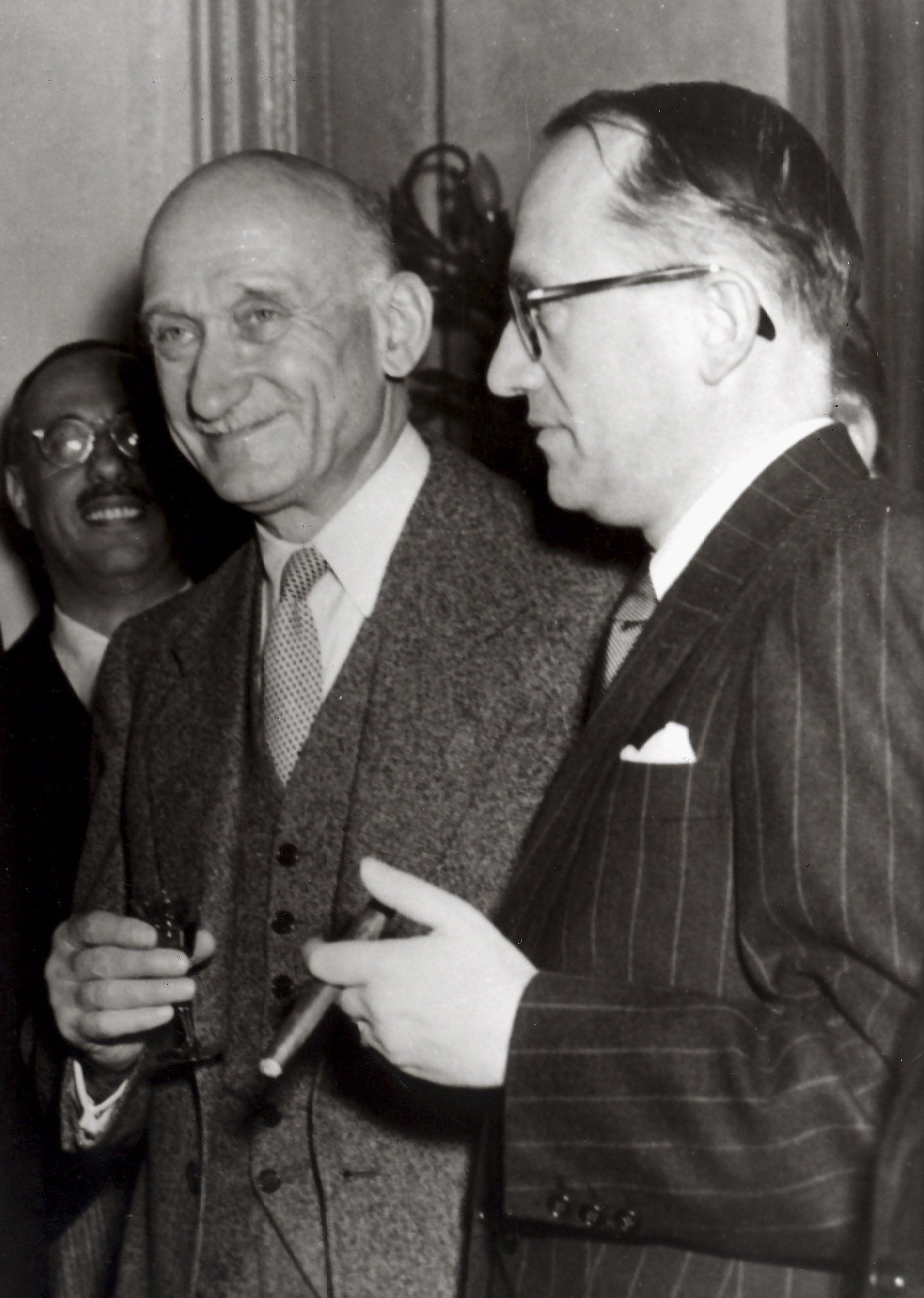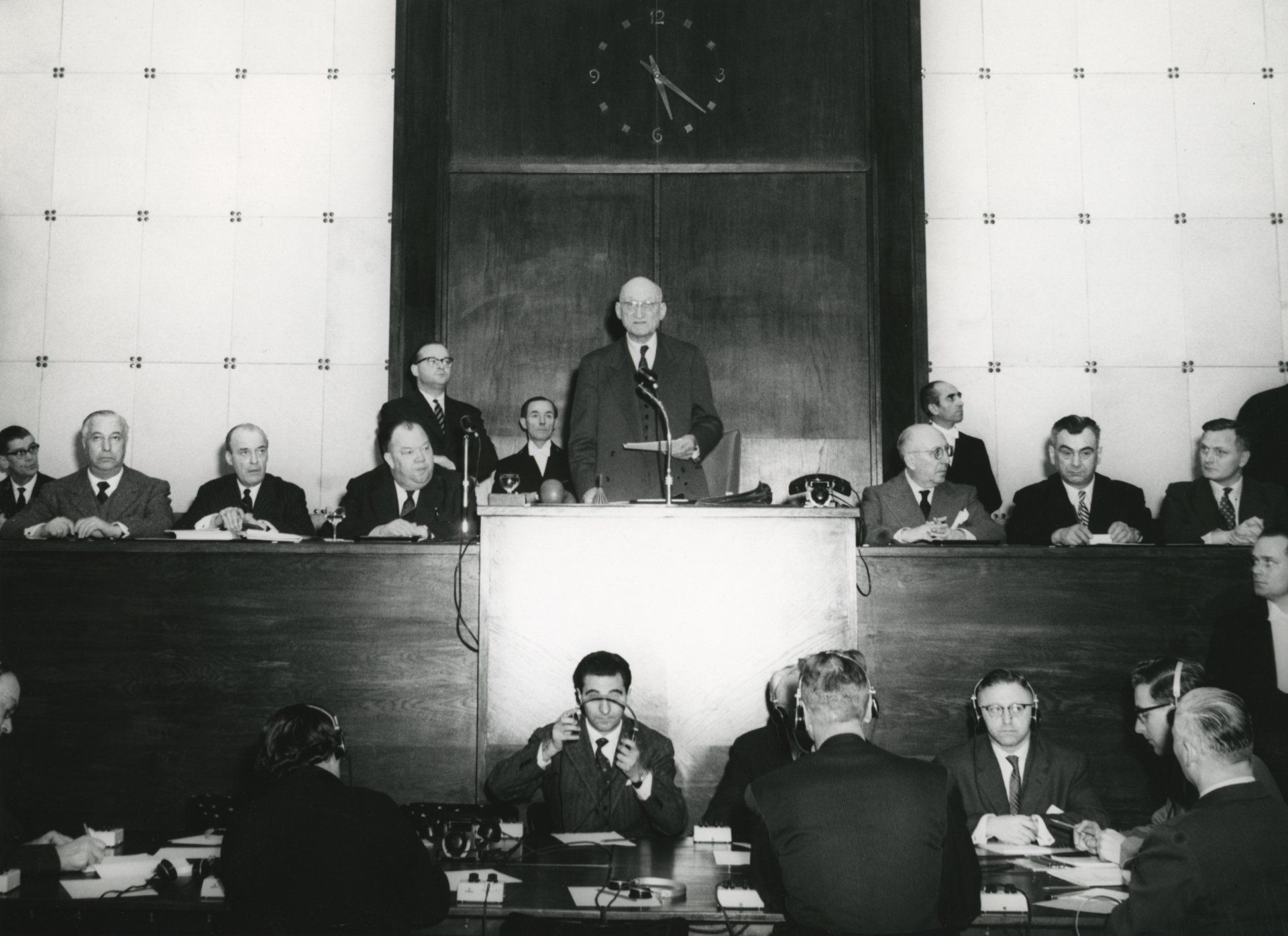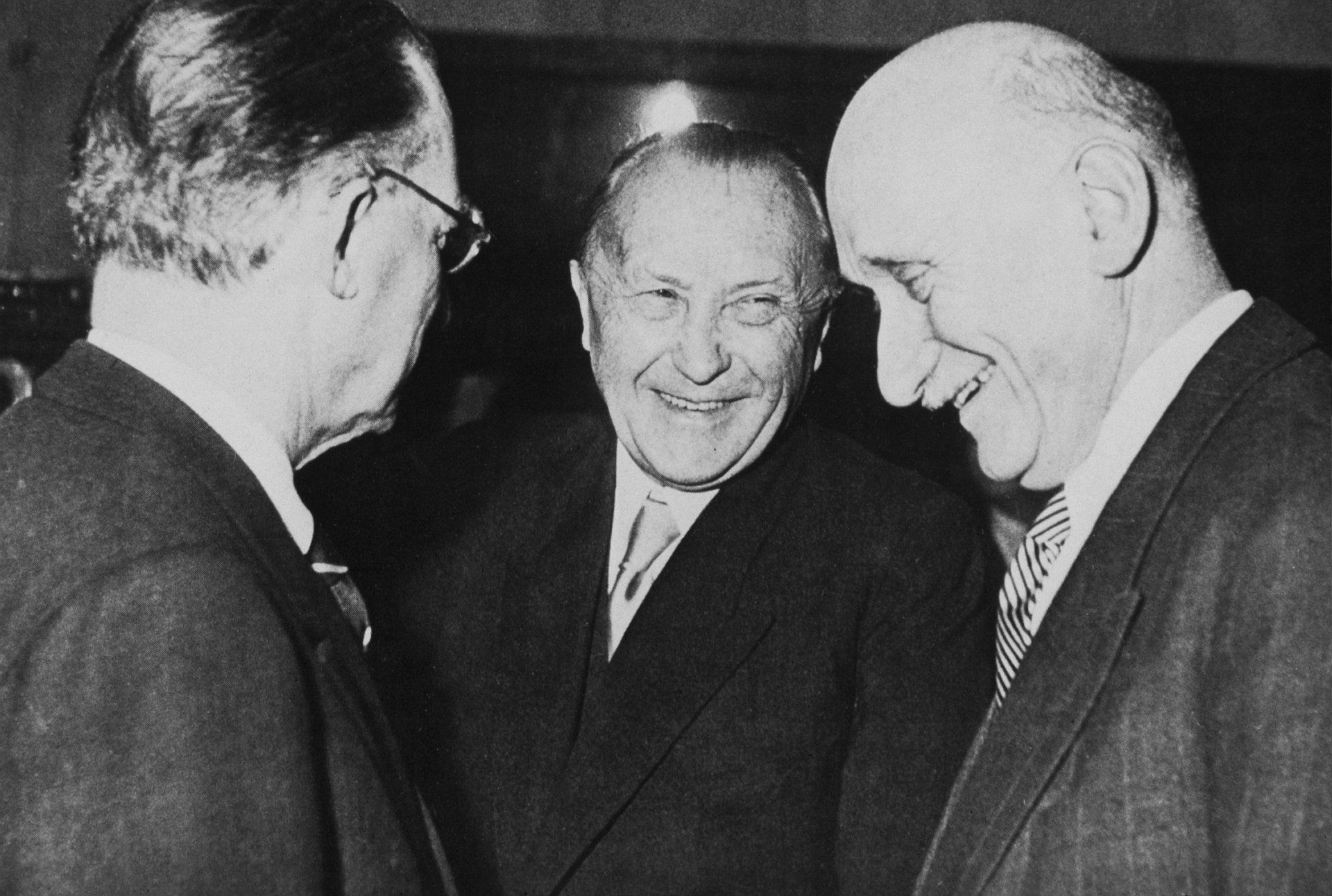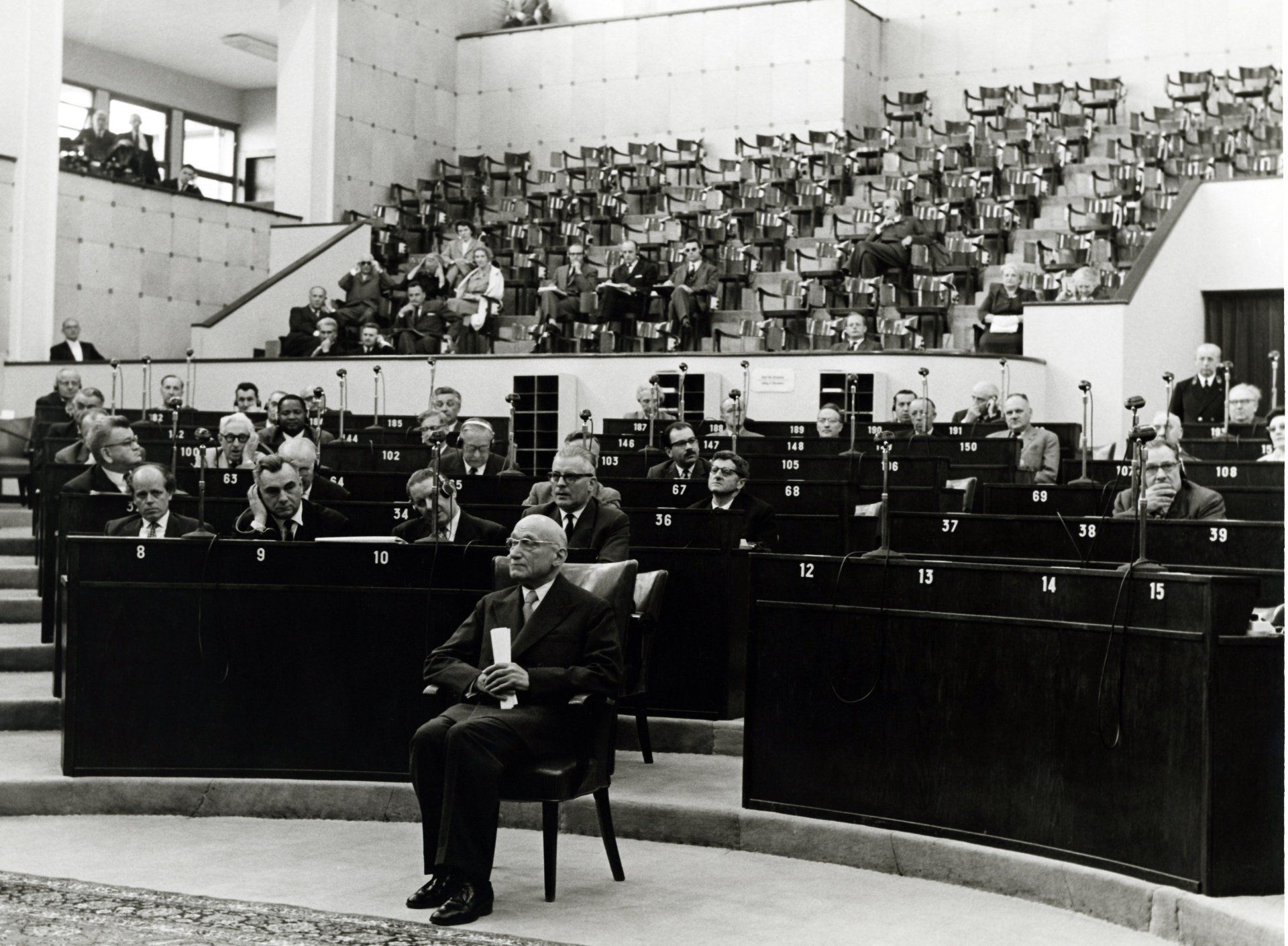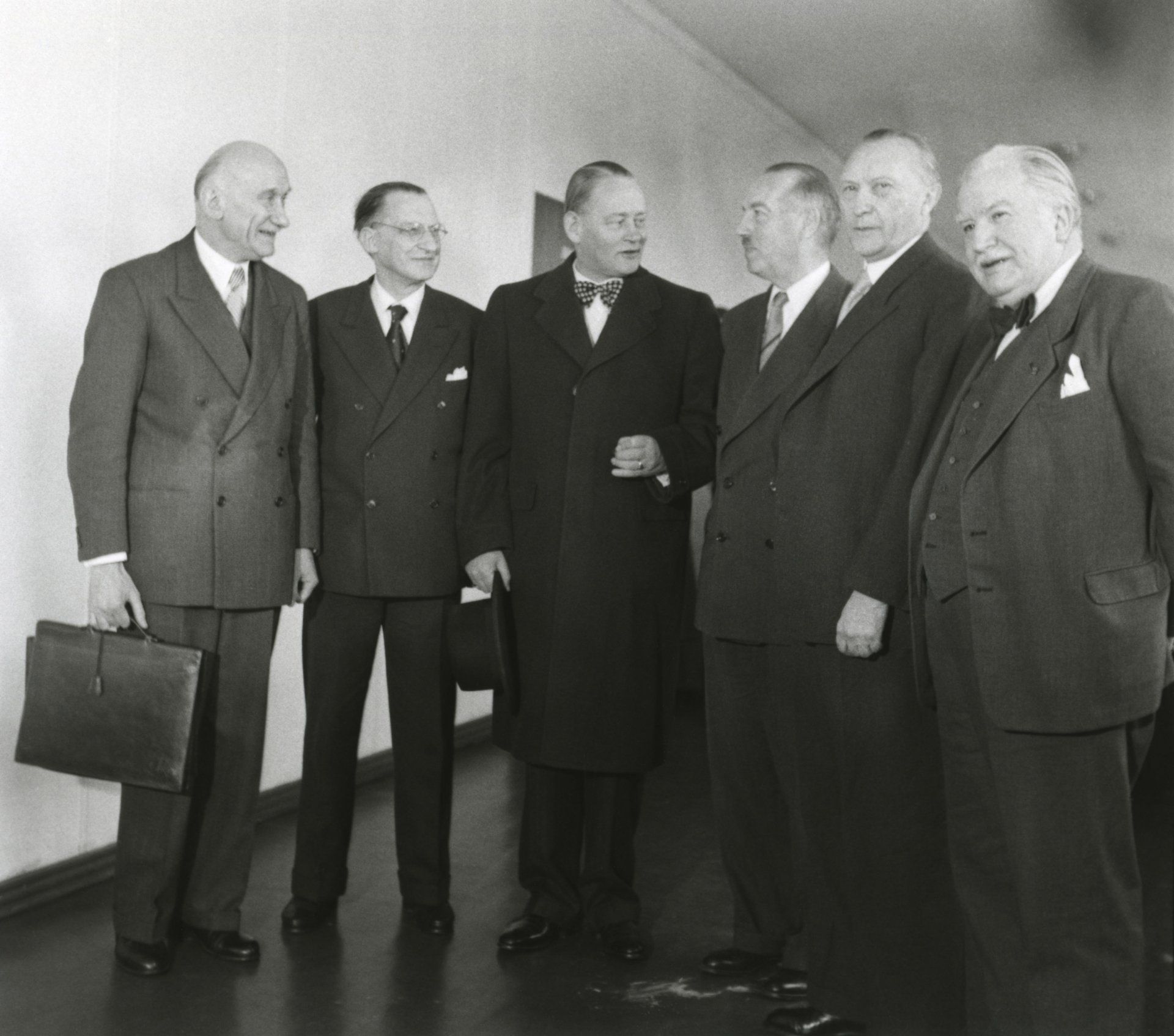The plan
Robert Schuman's plan for a United Europe consisted of five essential steps:
Effective Solidarity|Reconciliation|Person-Centered|Subsidiarity|Supranationality
Effective solidarity
With his Declaration, Robert Schuman introduced the possibility of supranational cooperation on common interests between multiple democratic States. Reconciliation, effective solidarity and subsidiarity are to be practiced among states for the common good.
Schuman's Point of View
MUTUAL UNDERSTANDING
Schuman considered the European spiritual and cultural heritage the raison d’être of the European integration project. This outlook implied working towards mutual understanding, and acting consistent with the common regional, national, continental, universal common good.
ONE STEP AT A TIME
Solidarity in line with subsidiarity and in small steps, taking into account basic human psychology. The process of integration would therefore take several generations. "Europe would not happen all at once".
SOLIDARITY OVER ECONOMIC ADVANTAGE
Economic cooperation should be a means and not the main purpose of European integration.
“This ‘whole’ cannot and must not remain an economic and technical enterprise: it needs a soul, the conscience of its historical affinities and of its responsibilities, in the present and in the future, and a political will at the service of the same human ideal.”
- Robert Schuman -
Uniting Europe
Robert Schuman laid down some of his thoughts and beliefs for a United Europe in principles he valued most. He envisioned the future of Europe to be of a reconciling nature: restoring the relations between France and Germany to achieve European unification.
Schuman wanted to put an end to the repeating events of war and unify Europe once and for all. In a letter Schuman wrote to his friend George Ditch in 1942, he showed his desire to come to a united Europe, unaware that eight years later the Schuman Declaration would give notice to precisely that. France and Germany, archenemies for more than a thousand years, would reconcile and start as equal partners a peace-project on a supranational level, changing the instruments of war, coal and steel, into instruments of peace.
"We and our allies should look for the cause of the wars and come to structures that make the return of such cataclysms impossible. The solutions can only be found within a unified European framework."
Reconciliation is about more than just coming together and accepting one another. It is about focussing on the positive of every single person, rather than the negative. It is about appreciating every single interaction or encounter which encourages to get the best out of every situation. It is about rebuilding Europe and promoting peace throughout all of its Member States.
Europe needs to restore and strengthen reconciliation so as to achieve the ideal of European integration through policies that respect the differences and focus on the common interests.
Schuman's leitmotiv
"Nous sommes tous des instruments bien imparfaits d’une providence qui s’en sert dans l’accomplissement des grands dessins qui nous dépassent."
“We are all instruments, however imperfect, of a providence who uses them to accomplish grand designs which surpass us."
- Robert Schuman -
Person-centered
The sense of belonging to a common European cultural and spiritual family, which entails brotherhood and respect for man’s personal freedom, needs to be fostered constantly. Such a spirit will encourage the willingness to share personal interests with those of others and the practice of solidarity. This in turn will foster the openness necessary for a unification of interests.
"Schuman stressed the importance of a 'European spirit' that needed to permeate this European enterprise".
The importance of the individual
Schuman would likely have objected to the federalist failure to focus on the main reason of European unification, which is not the economy nor integration for its own sake, but the person and the common European heritage with the consequent solidarity through specific deeds.
Referring this concept of man and solidarity to the Schuman Plan, meant that the Plan would lead to a unity in diversity in which the human person with his transcendence is of great importance and is at the base of the effective solidarity among the Europeans.
For all this to happen in the right way Schuman stressed the importance of a ‘European spirit’ that needed to permeate this European enterprise and that was to be found in the European cultural heritage with its Christian roots in which the human person played a pivotal role.
Subsidiarity
Decisions should always be taken at the lowest suitable level of power. This would prevent the centralization of power by the EU. Schuman stressed the importance of safeguarding the national identities and interests of the states, but only as long as they did not harm the common European interests.
As mentioned in EU legislation
Subsidiarity aims to ensure that decisions are taken as closely as possible to the citizen and that constant checks are made to verify that action at EU level is justified in light of the possibilities available at national, regional or local level. Specifically, it is the principle whereby the EU does not take action (except in the areas that fall within its exclusive competence), unless it is more effective than action taken at national, regional or local level. It is closely bound up with the principle of proportionality, which requires that any action by the EU should not go beyond what is necessary to achieve the objectives of the Treaties.
Subsidiarity from Schuman's view
Schuman became a successful lawyer in Metz, Lorraine. The mutual connection between Schuman and Lorraine was clear when the people of Lorraine elected Schuman as a representative of the French National Assembly. It was Schuman’s difficult task to align the interests of Alsace-Lorraine with the central French government.
The people in Alsace-Lorraine didn’t want to lose some of the social rights they had acquired under German occupancy. Due to his background, Schuman was able to find a compromise that pleased both sides. Schuman showed that he aimed to safeguard both regional and national interests, while also showing his willingness to align these interests when necessary. It was a preview of his European vision.
“We do not intend to deny our own past history, or weaken the vitality of our personal aspirations; our only limit is how to coordinate them in our immense collective work.”
- Robert Schuman -
Supranationality
- Only where needed -
Robert Schuman, Strasbourg, 16 May 1949
"The 19th century saw feudal ideas being opposed and, with the rise of a national spirit, nationalities asserting themselves. Our century, that has witnessed the catastrophes resulting in the unending clash of nationalities and nationalisms, must attempt and succeed in reconciling nations in a supranational association. This would safeguard the diversities and aspirations of each nation while coordinating them in the same manner as the regions are coordinated within the unity of the nation."
This supranational aspect of the European Community was essential according to Schuman. The new European authority should overrule national authorities, but only on topics of European unification. Schuman already spoke about a supranational Europe in the immediate post-war years. For Schuman this supranational aspect was akin to a ‘scientific discovery’. It would be the first time in world history that such a supranational political structure would be established.
The EU Treaties following the Schuman Declaration of 1950
Treaty of Paris - 1951
It laid out the foundations to set up the High Authority which brought forward the common market where coal and steel were placed on a supranational level.
Treaty of Rome - 1957
The main aim of the European Economic Community was to establish a common market which would be based on the four freedoms of movement (persons, goods, capital and services).
The Single European Act - 1986
Its objective was to complete and broaden the internal market which was first introduced in 1957.
The Maastricht Treaty/Treaty of European Union - 1992
This Treaty established the European Union with a single institutional structure consisting of the Council, the European Parliament, the European Commission, the Court of Justice and the Court of Auditors.
The Amsterdam Treaty - 1997
It was in this Treaty that Member States mutually decided to transfer certain powers from national governments to the European Parliament. This resulted in a stronger position for the Union with regards to legislation in different areas.
